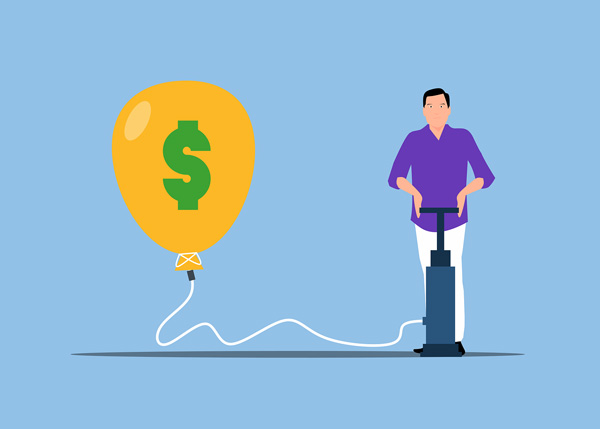Venezuela faces new inflation crisis amid U.S. sanctions

[economic inflation money crisis. Photo Credit to Pixabay]
Venezuela’s currency collapse and renewed U.S. oil restrictions have sent prices to a three-year high, deepening fears of another economic meltdown.
October inflation in Venezuela surged to its highest point in over two years, raising fears of another economic meltdown as tensions with the United States intensify.
According to the recent Venezuelan Finance Observatory, consumer prices rose nearly 20 percent in October 2025.
Analysts attribute this surge to a sharp fall in the value of the bolívar, continued shortages of foreign currency, and government spending ahead of the 2025 election.
The bolívar has depreciated nearly 40 percent against the U.S. dollar since mid-2025, forcing many businesses to use dollar prices to avoid constant adjustments.
Street vendors in Caracas report that the cost of food staples such as rice, oil, and flour has nearly doubled in the past few weeks.
One shop owner told CNN, “Customers come with the same amount of money but can only buy half of what they used to.”
The situation marks a setback for President Nicolás Maduro, who had vowed to control inflation after years of turmoil that pushed millions of Venezuelans to leave the country.
Between 2017 and 2019, Venezuela endured one of the worst hyperinflation crises in modern history, when the currency became almost worthless.
The recent surge in prices has revived fears that the country could slide back toward similar conditions if corrective measures fail.
Maduro’s government attributes the renewed inflation to “economic sabotage” and U.S. sanctions that restrict Venezuela’s oil sales abroad.
In October, Washington reimposed limits on Venezuela’s state-run oil company after the government failed to meet promises for a fair electoral process.
The United States had temporarily relaxed those sanctions in 2024, allowing Venezuela to export crude oil under a six-month license that has since expired this year.
The new restrictions have crippled the country’s main source of income since oil accounts for more than 90 percent of export earnings.
Reduced oil revenue has limited the government's access to foreign currency, making it harder to import goods and stabilize prices.
Economist Luis Vicente León told CNN that “without oil dollars, the central bank has almost no power to defend the bolívar.”
Dollarization has benefited some urban businesses, but it has deepened inequality between those who earn in dollars and those who rely on local salaries.
Public-sector employees are among the hardest hit, with many earning less than $40 a month, according to labor unions.
To ease widespread frustration, the government has announced new subsidies and wage bonuses, though experts warn these measures could fuel even more inflation.
At the same time, the central bank has tightened its control over private exchange rates and accused speculators of destabilizing the currency.
Critics argue that corruption, low oil production, and mismanagement—not sanctions alone—are to blame for Venezuela’s long-term economic decline.
Opposition leader María Corina Machado said the latest inflation spike “shows the government’s failure to protect Venezuelans from hunger and poverty.”
The crisis also threatens to exacerbate migration patterns across Latin America as more families struggle to meet basic needs.
The United Nations estimates that more than 7 million Venezuelans have left their country since 2015, mostly settling in neighboring nations such as Colombia, Peru, and Brazil.
Regional leaders fear that another wave could follow if the economy collapses again.
Despite these challenges, Maduro insists Venezuela is “on the path to recovery” and has called for renewed dialogue with the U.S. to lift sanctions.
He also points to modest growth in agriculture and tourism as signs that the economy can diversify beyond oil.
Still, the International Monetary Fund projects that inflation will remain above 200 percent next year without structural reform.
The coming months will test whether Maduro’s government can balance political control with public pressure as prices continue to climb.
For most Venezuelans, survival now depends on improvisation, resilience and hope that the crisis does not repeat the horrors of the past.

- Lauren Lee / Grade 12
- Korea International School

![THE HERALD STUDENT REPORTERS [US]](/assets/images/logo_student_us.png)
![THE HERALD STUDENT REPORTERS [Canada]](/assets/images/logo_student_ca.png)
